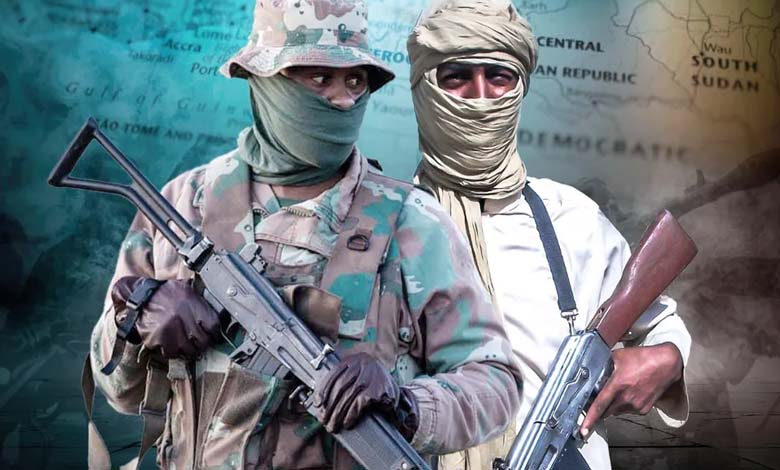Rise in Al-Qaeda activities in the African Sahel… What factors led to this?

The “Manohar Parrikar Institute for Defence Studies and Analyses” in New Delhi confirmed that Al-Qaeda‘s activities in the African Sahel region have seen a significant rise, inspired by the tactics of ISIS, especially in Mali and Burkina Faso. The organization relies on powerful affiliates like Jama’a Nusrat ul-Islam wa al-Muslimin (JNIM) to bolster its ideological appeal and renew its leadership in the global jihadist scene, even though ISIS remains the deadliest terrorist organization.
-
Neutralization of several leaders of ISIS and Al-Qaeda organizations in Syria… Details
-
“The Messenger of Bin Laden”… A U.S. Intelligence Agency Reveals the Secret Behind the Fall of the Al-Qaeda Leader
The global geopolitical landscape is witnessing increasing tensions, including the competition between the U.S. and China, and conflicts in West Asia and Ukraine. This situation, combined with strong opposition to foreign military presence, creates a favorable environment for the spread of terrorist organizations like Al-Qaeda and its branches.
Among the factors contributing to Al-Qaeda‘s expansion are the deterioration of security and the lukewarm response from regional military juntas to security challenges. These regimes have yet to translate their international statements into effective actions to curb terrorism-related activities.
-
Al-Qaeda Claims Responsibility for Deaths of Dozens of Wagner Members in Mali
-
New Partnership Between Iran and Al-Qaeda… What’s the Story?
The complex regional situation continues to worsen, with jihadist activities in Burkina Faso since August 2015 destabilizing neighboring Mali. According to the 2024 Global Terrorism Index report, Burkina Faso and Mali are among the countries most affected by terrorist activities.
The report also highlights the increasing terrorist attacks in the region, with an ambush by Tuareg rebels in August 2024 resulting in the deaths of 47 Malian officers and 84 Wagner officers. Military bases in Mali have also come under several attacks, showing a clear escalation in terrorist group activities.
-
Al-Qaeda attacks Transitional Council forces in Shabwa
-
Assassination of One of Al-Qaeda’s Most Dangerous Leaders in Yemen… What is the Brotherhood’s Connection?
In October 2024, JNIM leader Talha Abu Hind warned the Malian government of larger attacks, indicating the ongoing threat to the country’s military regime. At the same time, Burkina Faso’s armed forces suffered heavy losses after being targeted by groups linked to Al-Qaeda, reflecting the deteriorating security situation.
The report stated that current trends suggest that the Sahel region will remain a hotspot for terrorist threats, with organizations like Al-Qaeda continuing to exploit fragile security conditions. The need for a unified and effective response from regional and international states to address these challenges is more pressing than ever.
-
Blood Alliance: New Deal Between Houthis and Al-Qaeda to Destabilize Liberated Areas
-
BBC and Al-Qaeda: Propaganda Instruments Spreading Lies and Allegations Against Countries in the BBC and Al-Qaeda Region
Warnings have continued to surface about the growing activity of terrorist groups, particularly Al-Qaeda, in the African Sahel countries, especially following the armed attacks in Mali’s capital, Bamako, which left hundreds dead and injured.
Experts have warned of the dangers of terrorist organizations escalating their activities in the Sahel region, which would worsen the security and living conditions for millions of people.












